
Moorea: The Heart of French Polynesia's Tropical Splendor
Moorea is a stunning island in French Polynesia, renowned for its crystal-clear lagoons, lush green mountains, and vibrant marine life. Just a short ferry ride from Tahiti, Moorea offers a tranquil escape with a blend of natural beauty and Polynesian culture. Its iconic jagged peaks, such as Mount Rotui and Mount Tohivea, stand majestically against the backdrop of the azure Pacific Ocean, creating a picture-perfect landscape that attracts photographers and nature lovers alike. Moorea's beaches are a haven for relaxation and adventure. The island's pristine, white-sand shores are ideal for sunbathing, while the warm, turquoise waters invite visitors to snorkel, dive, and explore the colorful coral reefs teeming with tropical fish. For those seeking more excitement, activities like paddleboarding, kayaking, and even shark and ray feeding excursions are readily available. The island's interior is equally captivating, with lush rainforests and pineapple plantations providing scenic hiking and ATV trails. The local culture of Moorea is rich and welcoming. Visitors can experience traditional Polynesian music, dance, and cuisine at various cultural centers and events. The island's villages, such as Maharepa and Haapiti, offer charming shops and markets where tourists can purchase local crafts, black pearls, and other souvenirs. Moorea's laid-back atmosphere, combined with its breathtaking scenery and warm hospitality, makes it a must-visit destination for anyone traveling to French Polynesia.
Local tips in Moorea
- Visit the Belvedere Lookout for panoramic views of Cook's Bay and Opunohu Bay.
- Rent a scooter or car to explore the island at your own pace.
- Try the local dish, Poisson Cru, a Polynesian ceviche made with fresh fish and coconut milk.
- Take a lagoon tour to swim with sharks and rays for an unforgettable experience.
- Visit the Tiki Village Cultural Centre to learn about traditional Polynesian culture and crafts.
Moorea: The Heart of French Polynesia's Tropical Splendor
Moorea is a stunning island in French Polynesia, renowned for its crystal-clear lagoons, lush green mountains, and vibrant marine life. Just a short ferry ride from Tahiti, Moorea offers a tranquil escape with a blend of natural beauty and Polynesian culture. Its iconic jagged peaks, such as Mount Rotui and Mount Tohivea, stand majestically against the backdrop of the azure Pacific Ocean, creating a picture-perfect landscape that attracts photographers and nature lovers alike. Moorea's beaches are a haven for relaxation and adventure. The island's pristine, white-sand shores are ideal for sunbathing, while the warm, turquoise waters invite visitors to snorkel, dive, and explore the colorful coral reefs teeming with tropical fish. For those seeking more excitement, activities like paddleboarding, kayaking, and even shark and ray feeding excursions are readily available. The island's interior is equally captivating, with lush rainforests and pineapple plantations providing scenic hiking and ATV trails. The local culture of Moorea is rich and welcoming. Visitors can experience traditional Polynesian music, dance, and cuisine at various cultural centers and events. The island's villages, such as Maharepa and Haapiti, offer charming shops and markets where tourists can purchase local crafts, black pearls, and other souvenirs. Moorea's laid-back atmosphere, combined with its breathtaking scenery and warm hospitality, makes it a must-visit destination for anyone traveling to French Polynesia.
When is the best time to go to Moorea?
Iconic landmarks you can’t miss
Hilton Moorea Lagoon Resort & Spa
Experience luxury and natural beauty at Hilton Moorea Lagoon Resort & Spa, your tropical paradise in French Polynesia, where relaxation meets adventure.
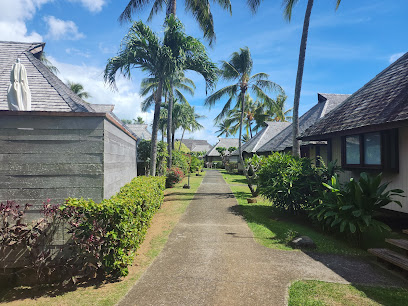
Sofitel Kia Ora Moorea Beach Resort
Discover the ultimate luxurious getaway at Sofitel Kia Ora Moorea Beach Resort, where paradise meets exceptional service in the heart of French Polynesia.
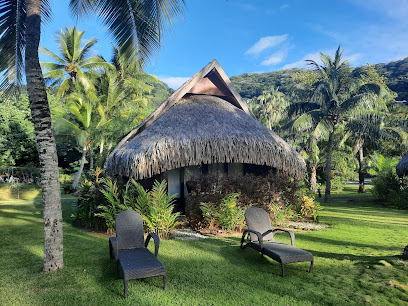
Belvedere Lookout
Experience breathtaking panoramas at Belvedere Lookout, a scenic gem in Moorea, French Polynesia, where nature's beauty unfolds before your eyes.
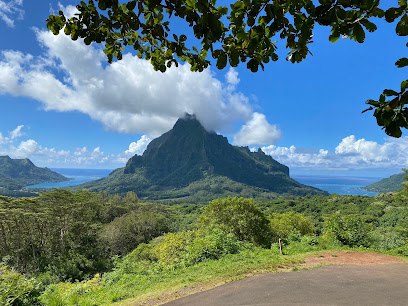
Tiki Village
Immerse yourself in the vibrant culture of Polynesia at Tiki Village, where traditions come alive through dance, crafts, and cuisine.
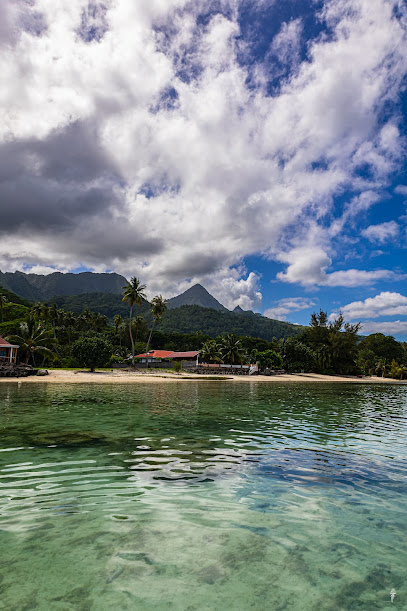
Mo'orea
Explore the breathtaking beauty of Mo'orea, an island paradise in French Polynesia, where adventure meets relaxation amidst stunning landscapes.
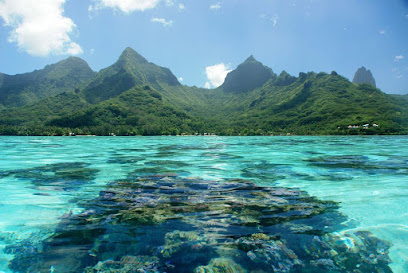
Snack Mahana RESA
Explore the vibrant flavors of Moorea at Snack Mahana, a charming restaurant serving local delicacies amidst stunning island views.
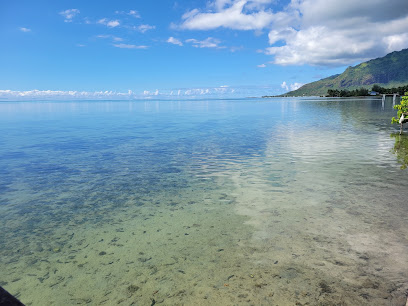
Rudy's
Experience the exquisite flavors of French cuisine blended with the tropical essence of Moorea at Rudy's, a must-visit dining destination.
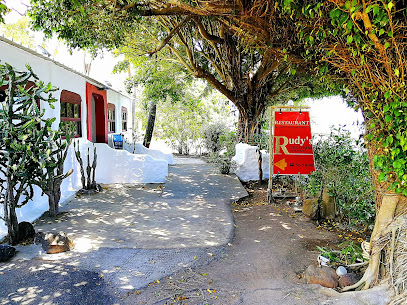
Moorea Activities Center - Opunohu
Experience adventure and natural beauty at the Moorea Activities Center, your gateway to ATV rides, boat tours, and unforgettable whale watching in French Polynesia.
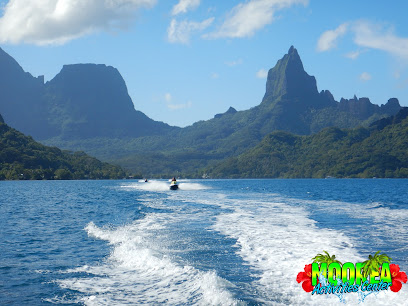
Manutea Tahiti - Rotui Juice Factory & Distillery
Explore the vibrant world of Tahitian juices and rums at Manutea Tahiti - Rotui Juice Factory & Distillery, where local flavors meet traditional craftsmanship.
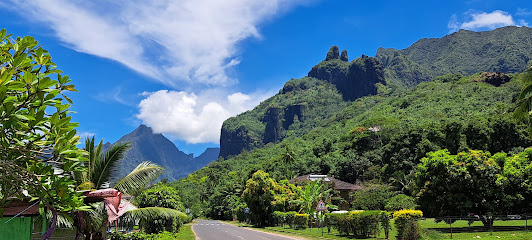
Public Beach Ta'ahiamanu
Experience the serene beauty of Public Beach Ta'ahiamanu in Moorea-Maiao, a tropical paradise with soft sands and vibrant marine life.
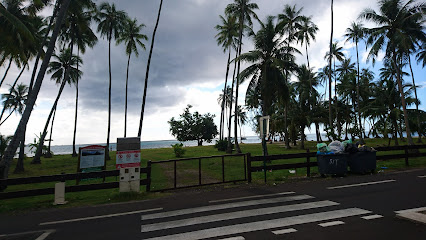
Coco beach Moorea
Experience the flavors of French Polynesia at Coco Beach Moorea, where fresh seafood meets stunning ocean views in a tropical paradise.
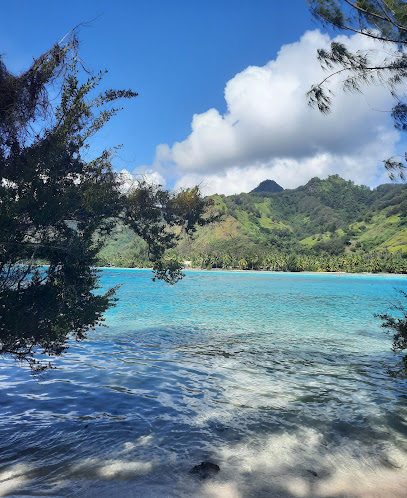
Magic Mountain Overlook
Discover breathtaking views at Magic Mountain Overlook, a scenic gem in Papeete, offering stunning panoramas of Tahiti's lush landscapes and azure waters.
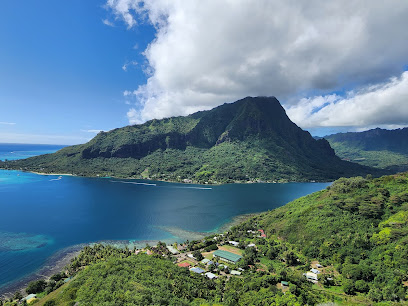
Casa Vincenzo Moorea
Experience authentic Italian flavors at Casa Vincenzo Moorea, where delicious pizza meets stunning ocean views in paradise.
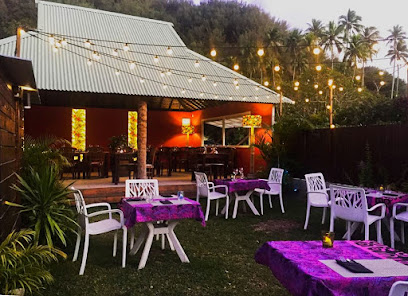
Fare La Canadienne Burger House Moorea
Experience the best burgers in Moorea-Maiao, where local flavors meet tropical paradise at Fare La Canadienne Burger House.
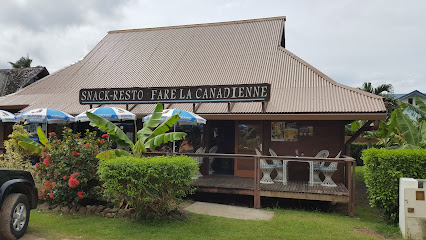
Moorea Miti Tours
Experience the breathtaking beauty of Moorea with unforgettable boat tours showcasing vibrant marine life and stunning landscapes in French Polynesia.
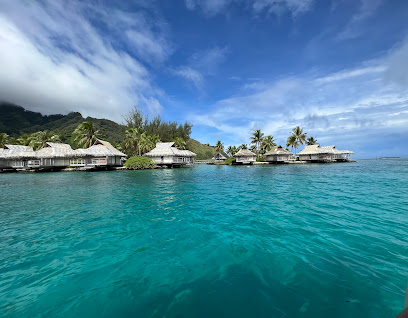
Unmissable attractions to see
Belvedere Lookout
Experience Moorea's breathtaking beauty from Belvedere Lookout: panoramic views, lush valleys, and iconic mountain vistas await!
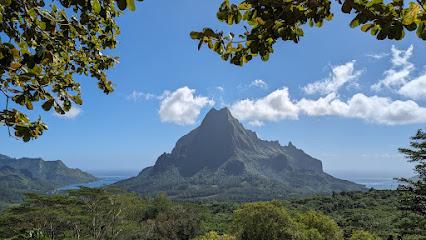
Tiki Village
Experience the vibrant heart of Polynesian culture with traditional dances, crafts, and cuisine at Moorea's Tiki Village.
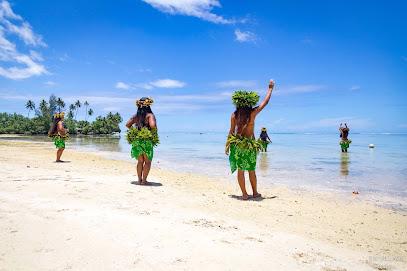
Arahoho Blowhole
Witness the power of nature at Tahiti's Arahoho Blowhole, a spectacular coastal geyser easily accessible on the island's scenic east coast.
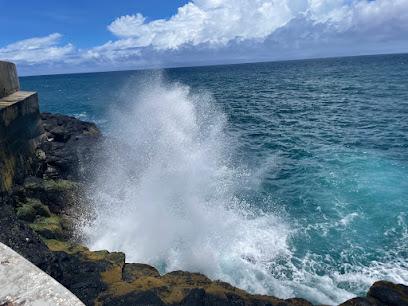
Fa'aruma'i Waterfalls
Discover the majestic Fa'aruma'i Waterfalls in Tahiti: a trio of stunning cascades surrounded by lush rainforest and steeped in local legend.
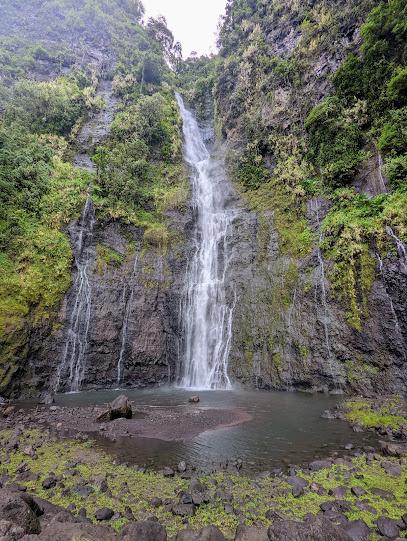
Public Beach Ta'ahiamanu
Discover Moorea's accessible paradise: Ta'ahiamanu Beach offers soft sands, clear waters, and stunning views for relaxation and aquatic adventures.
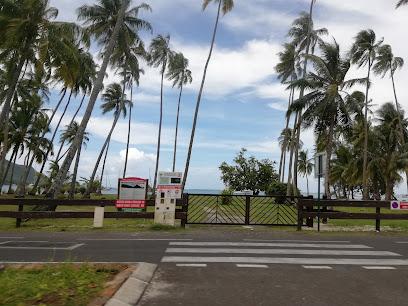
Manutea Tahiti - Rotui Juice Factory & Distillery
Experience the authentic taste of Moorea with tropical juices and rum at the foot of Mount Rotui. A must-visit for flavor and culture!
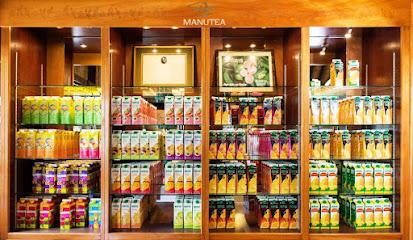
Museum of Tahiti and The Islands
Discover Polynesian culture and history at the Musée de Tahiti et des Îles, a must-see destination on the island of Tahiti.
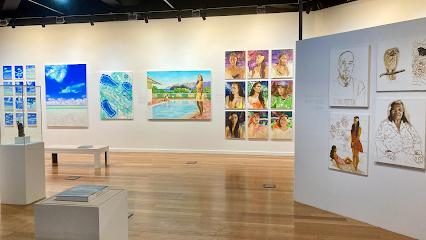
Pā'ōfa'i Gardens
Escape to Papeete's serene Pā'ōfa'i Gardens: a lush oasis of tropical flora, cultural monuments, and tranquil waterfront views. Open daily, free entry.
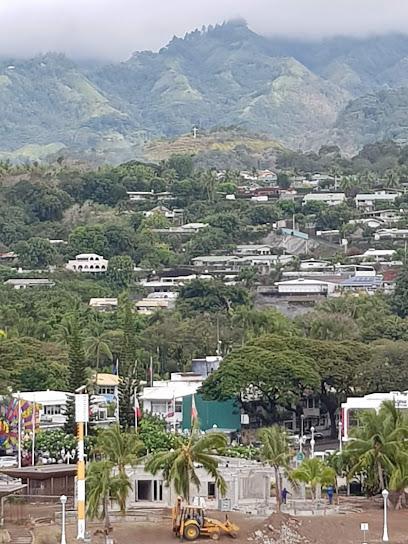
Captain Taina - Turtle Club
Discover Moorea's underwater treasures with Captain Taina's Turtle Club: snorkel with turtles, explore vibrant reefs, and experience Polynesian hospitality.
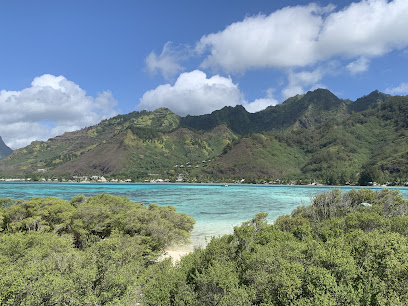
Top Jet & Top Quad Moorea (jet ski, QUAD/ATV, baleines/whales, tour bateau, private boat tours)
Experience Moorea's beauty with thrilling jet ski and quad tours. Explore the lagoon and island interior for an unforgettable adventure!
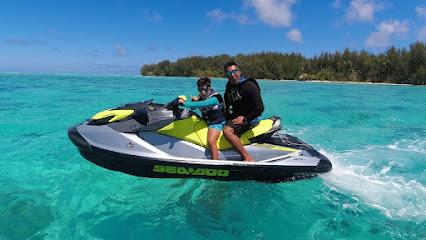
Grottes De Mara'a
Discover the Grottes de Mara'a in Tahiti: natural caves, clear pools, lush vegetation, and Polynesian legends await on the west coast.
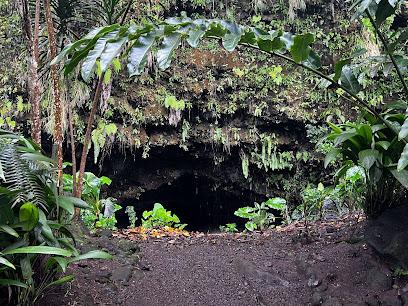
Tropical Garden
Discover Moorea's Tropical Garden: A sweet escape with homemade treats, lush greenery, and stunning lagoon views.
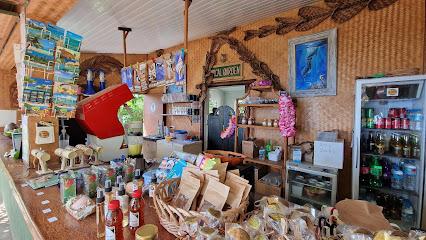
MOOREA TIKI TOUR
Experience Moorea's breathtaking lagoon with personalized boat tours, vibrant marine life encounters, and enriching Polynesian cultural insights.
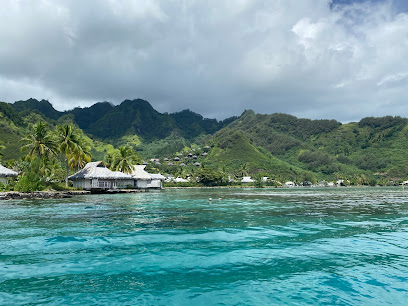
Magic Mountain Overlook
Experience panoramic views of French Polynesia's beauty at Magic Mountain Overlook near Papeete. A must-see scenic spot!
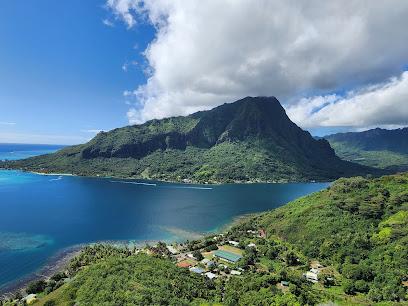
Toatea Lookout
Breathtaking panoramic views of Moorea's lagoon, Tahiti, and the iconic Sofitel overwater bungalows from this easily accessible coastal lookout.
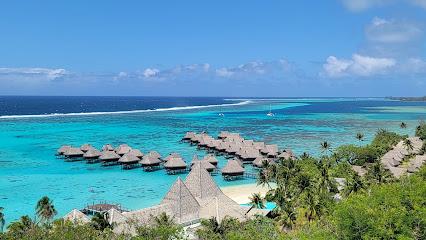
Essential places to dine
Snack Mahana RESA
Experience authentic Polynesian cuisine at Snack Mahana RESA in Moorea – where every meal is complemented by stunning lagoon views.
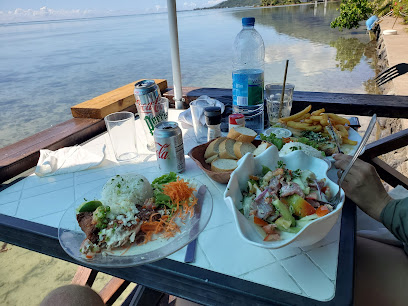
Rudy's
Experience exquisite French cuisine with stunning coastal views at Rudy's in Moorea-Maiao.
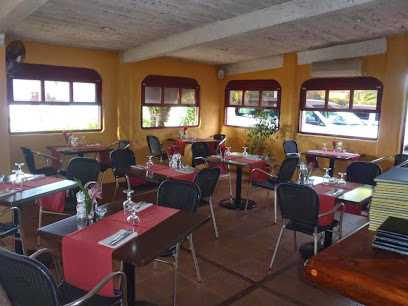
Moorea Beach Cafe by Bruno Jamais
Experience exquisite Japanese cuisine amidst stunning ocean views at Moorea Beach Cafe by Bruno Jamais.
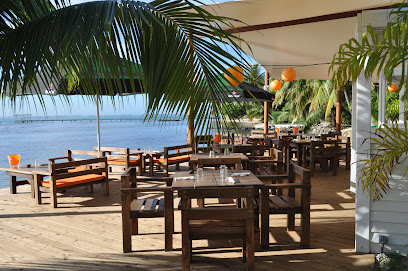
HOLY STEAK HOUSE
Discover exquisite steaks and local flavors at Holy Steak House in Moorea-Maiao - a culinary gem in French Polynesia.
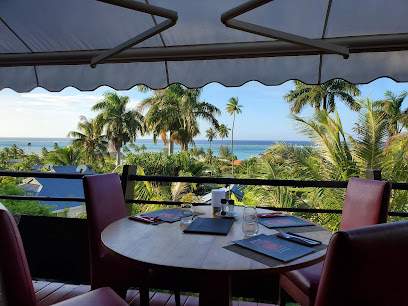
Restaurant Tiahura Chez Irène
Experience authentic Polynesian flavors amidst breathtaking views at Restaurant Tiahura Chez Irène in Moorea-Maiao.
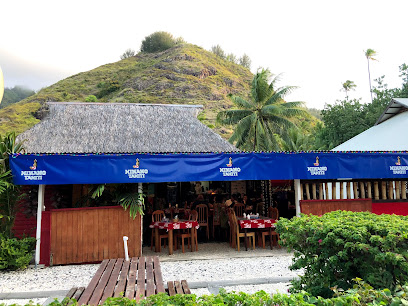
Allo Pizza
Discover Allo Pizza in Moorea - A culinary delight featuring unique pizzas crafted with fresh ingredients amidst breathtaking island views.
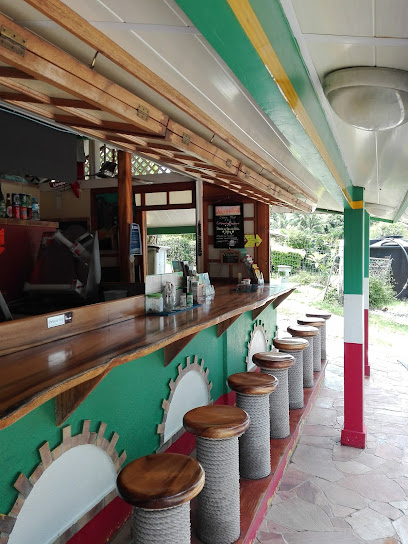
Coco beach Moorea
Discover culinary delights at Coco Beach Moorea while soaking in stunning ocean views in beautiful French Polynesia.
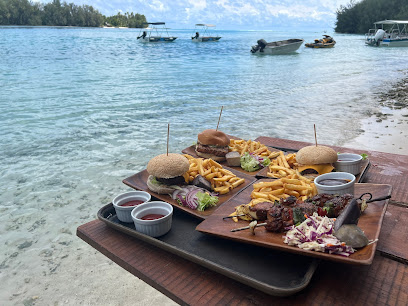
Casa Vincenzo Moorea
Experience exquisite pizzas at Casa Vincenzo Moorea, where local flavors meet Italian tradition in breathtaking French Polynesia.
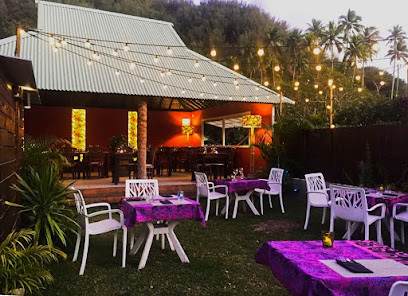
Fare La Canadienne Burger House Moorea
Discover gourmet burgers amidst tropical paradise at Fare La Canadienne Burger House in Moorea-Maiao.
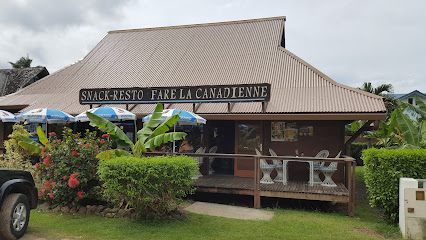
A l'Heure du Sud
Experience authentic Polynesian cuisine with breathtaking views at A l'Heure du Sud on Moorea Island.
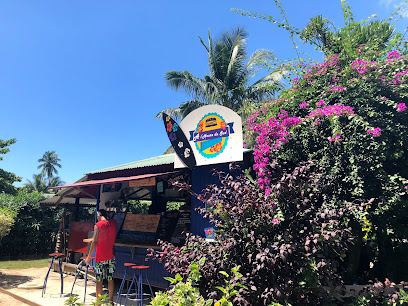
Manuia Grill
Discover exquisite French Polynesian cuisine at Manuia Grill in Maharepa - a culinary gem offering breathtaking views and unforgettable flavors.
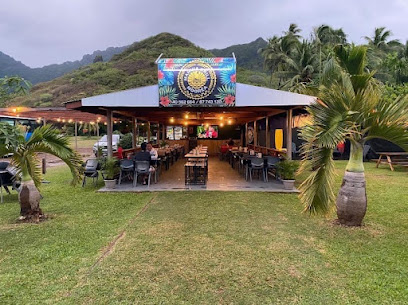
Snack Coco D'isle
Discover authentic Polynesian flavors at Snack Coco D'isle - a culinary paradise set against Moorea-Maiao's stunning landscape.
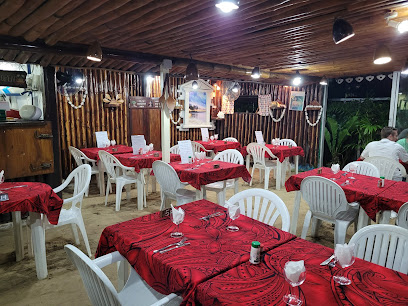
LE LÉZARD JAUNE CAFÉ
Discover exquisite flavors at Le Lézard Jaune Café in Moorea-Maiao, where local ingredients meet stunning island views for an unforgettable dining experience.
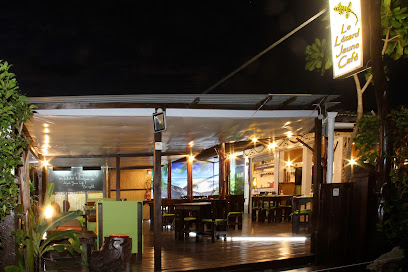
Sea You Soon Moorea - Le QG
Experience authentic Polynesian grilled cuisine at Sea You Soon Moorea - Le QG, where flavor meets island charm.
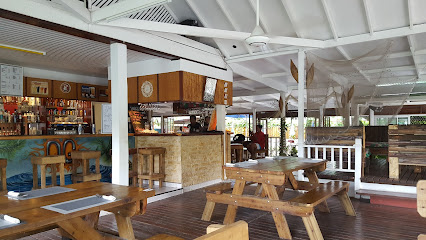
Restaurant Te Honu Iti
Discover the flavors of French Polynesia at Restaurant Te Honu Iti - where exquisite cuisine meets breathtaking views.
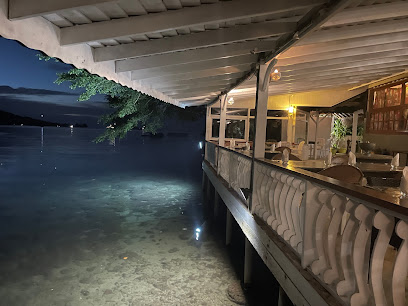
Markets, malls and hidden boutiques
P.Originals Pearls Moorea
Explore the finest Tahitian pearls at P. Originals Pearls Moorea, where beauty meets craftsmanship in a stunning island paradise.
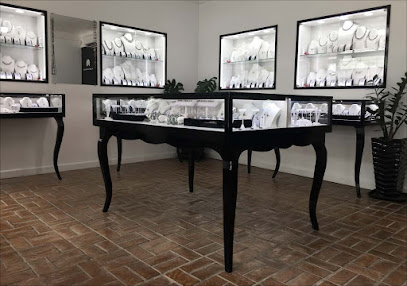
Champion Moorea
Explore Champion Moorea, a vibrant supermarket in the heart of French Polynesia, offering fresh produce and local delicacies for tourists and locals alike.
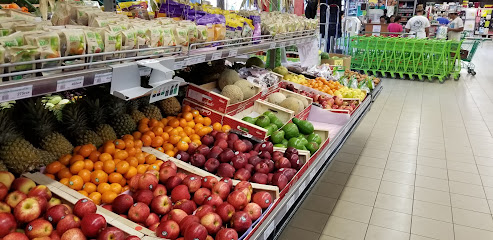
Super U Aré
Discover the best of Moorea at Super U Aré, where local flavors meet international goods, perfect for every traveler.
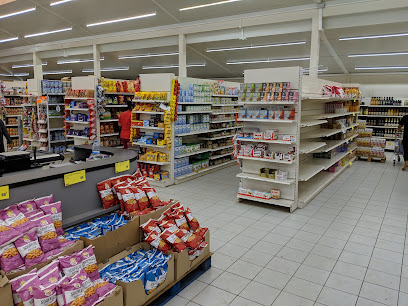
Pearl Romance
Explore Pearl Romance, a captivating bead store in Moorea-Maiao, offering unique handcrafted jewelry and a taste of Polynesian artistry.
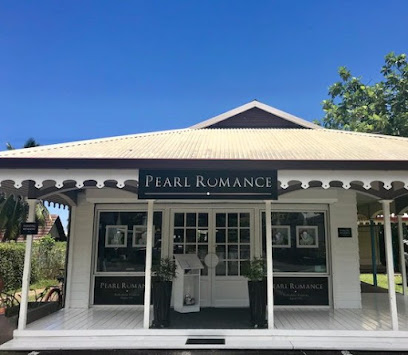
Le Petit Village
Experience the vibrant culture and unique shopping at Le Petit Village, a charming shopping mall in Moorea, French Polynesia.
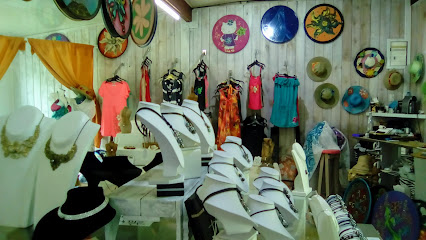
pearls & more
Explore the unique beauty of Pearls & More, a premier jewelry store in Moorea-Maiao, offering exquisite pearl jewelry that captures the essence of French Polynesia.
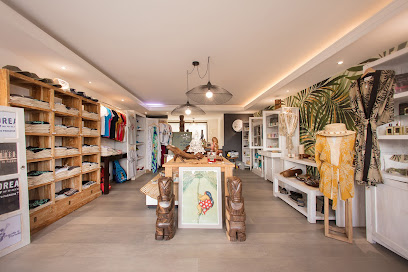
Paimoana Pearls
Explore Paimoana Pearls, the premier destination for exquisite Tahitian pearl jewelry in the heart of Moorea-Maiao, French Polynesia.
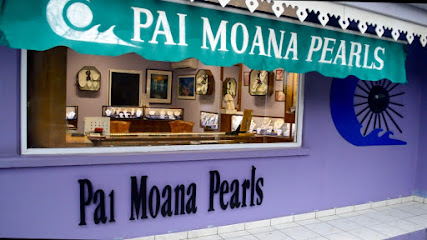
Moana Pearls
Explore the artistry of handcrafted jewelry featuring Tahitian pearls at Moana Pearls, a treasure trove in the heart of Moorea.
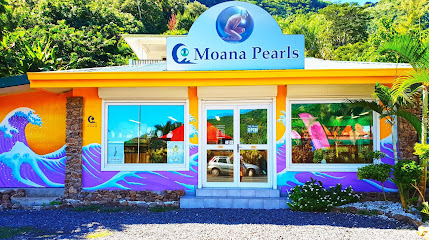
LENDROIT
Discover LENDROIT in Moorea, where artistry meets the vibrant spirit of French Polynesia through unique gifts and handcrafted treasures.
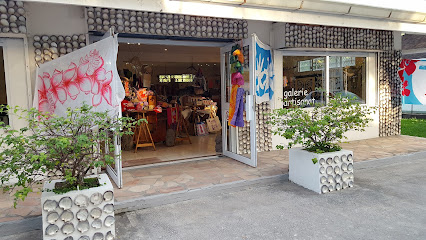
La Pirogue
Explore La Pirogue, a unique store in Moorea-Maiao, offering handcrafted Polynesian souvenirs and gourmet delights in a tropical paradise.
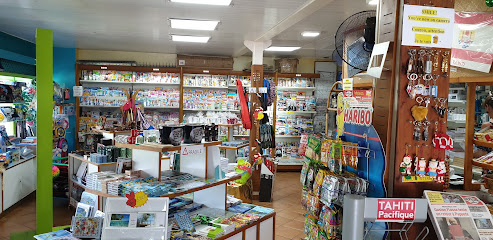
Nancy's Creations
Explore unique handcrafted jewelry at Nancy's Creations in Moorea-Maiao, where each piece tells a story of Polynesian heritage and artistry.
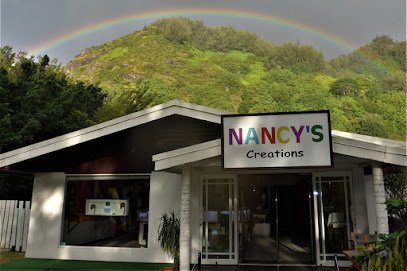
Have a nice pearl
Explore the beauty of Tahitian pearls at Have a Nice Pearl, a premier jewelry store nestled in the Moorea Pearl Resort and Spa.
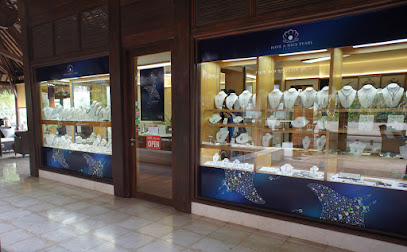
Pearl Romance Sofitel Moorea Ia Ora Beach Resort
Experience luxury and exquisite local craftsmanship at Pearl Romance, the finest jewelry store in Moorea-Maiao, French Polynesia.
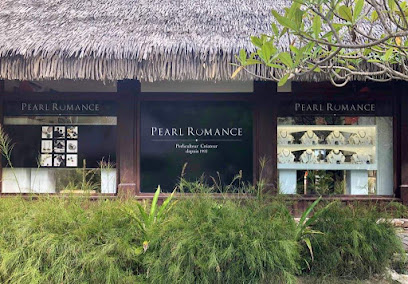
RON HALL Pearls
Explore the exquisite beauty of Tahitian pearls at RON HALL Pearls, a premier jewelry store in the heart of French Polynesia.
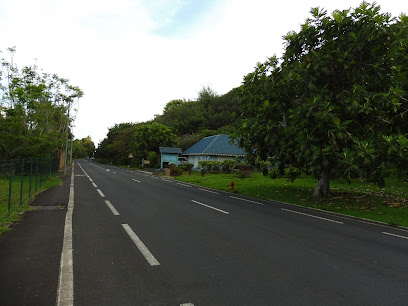
COCOBLANC MOOREA
Discover exquisite jewelry and fashion accessories at CocoBlanc Moorea, where local artistry meets paradise in the heart of French Polynesia.
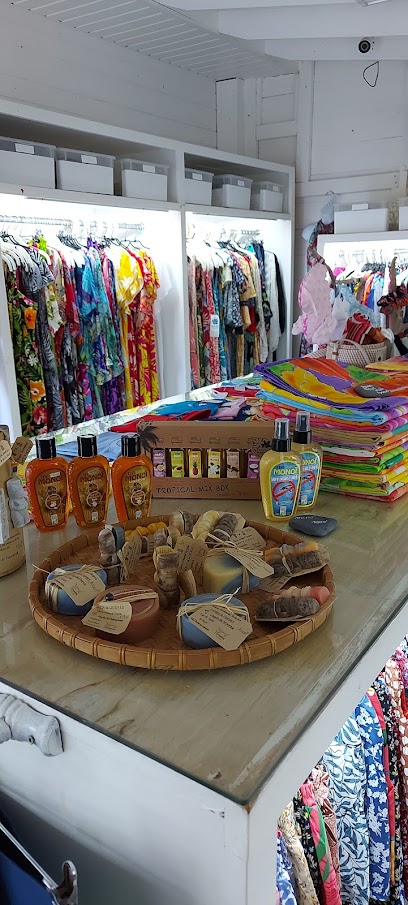
Essential bars & hidden hideouts
Rudy's
Experience exquisite French cuisine in the heart of French Polynesia at Rudy's, where culinary delight meets breathtaking coastal views.
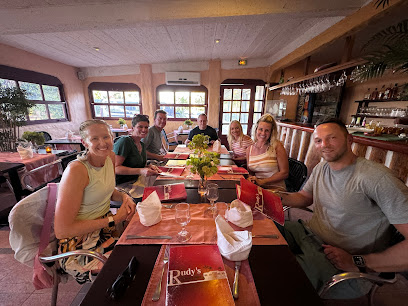
Moorea Beach Cafe by Bruno Jamais
Experience the perfect blend of Japanese cuisine and breathtaking ocean views at Moorea Beach Cafe, a culinary gem in French Polynesia.
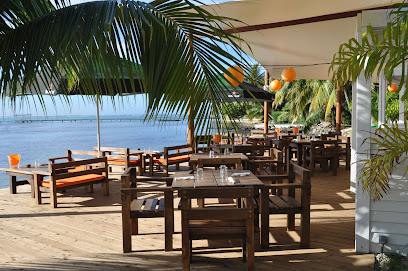
Coco beach Moorea
Experience the culinary delights of Coco Beach Moorea, where local flavors meet breathtaking views in French Polynesia's paradise.
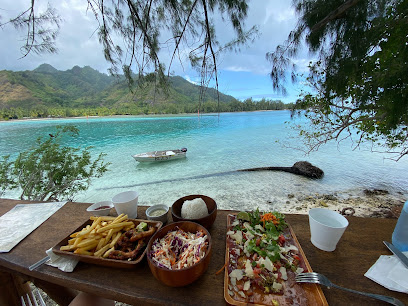
Casa Vincenzo Moorea
Discover authentic Italian pizza amidst the tropical beauty of Moorea at Casa Vincenzo, where flavor meets paradise.
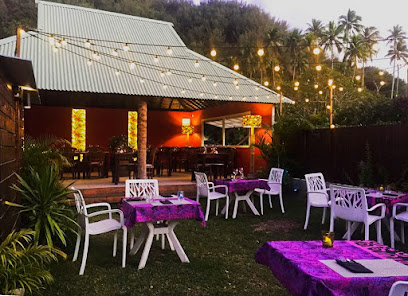
Fare La Canadienne Burger House Moorea
Experience the best of gourmet burgers in a stunning tropical paradise at Fare La Canadienne Burger House in Moorea.
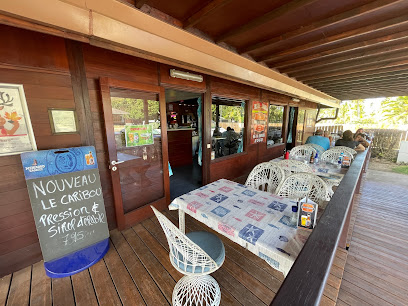
A l'Heure du Sud
Experience the essence of French Polynesian cuisine at A l'Heure du Sud, where every meal is a celebration of local flavors and breathtaking views.
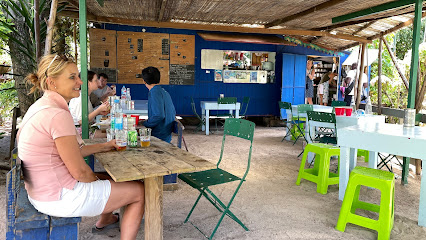
LE LÉZARD JAUNE CAFÉ
Experience the vibrant flavors of French Polynesia at Le Lézard Jaune Café, a culinary gem in Moorea-Maiao serving exquisite local and French dishes.
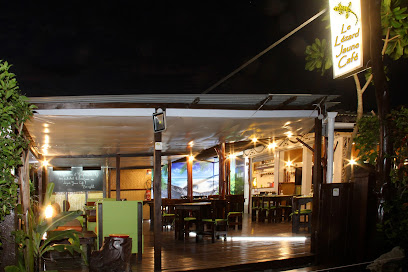
Sea You Soon Moorea - Le QG
Experience the essence of Polynesian cuisine at Sea You Soon Moorea - Le QG, a vibrant grill restaurant offering fresh flavors and stunning views.
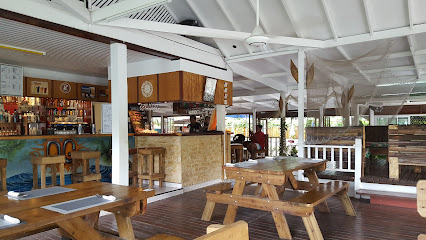
Restaurant Te Honu Iti
Discover the vibrant flavors of Moorea at Restaurant Te Honu Iti, where local cuisine meets cocktail artistry in a stunning tropical setting.
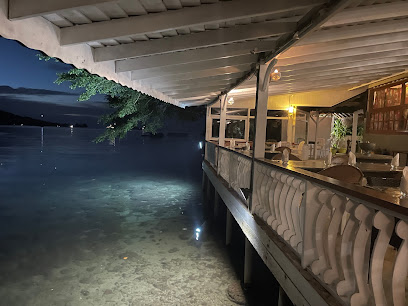
Taoahere Beach House Snack
Discover the culinary delights at Taoahere Beach House Snack in Moorea-Maiao, where island flavors meet breathtaking views.
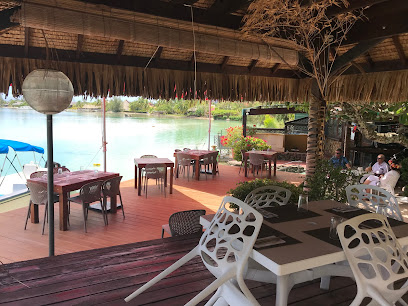
Rotui Grill & Bar
Indulge in exquisite local cuisine while surrounded by breathtaking landscapes at Rotui Grill & Bar in Moorea, French Polynesia.
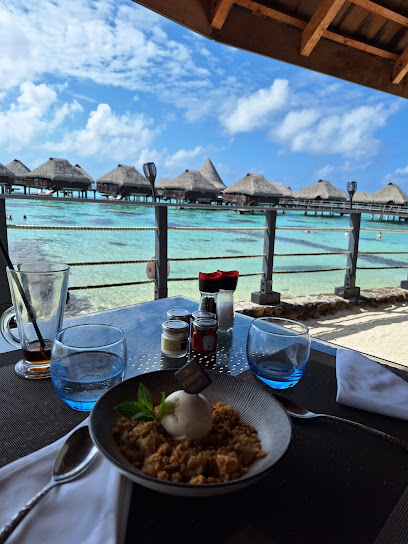
LE COOK'S Bar et Restaurant, Moorea
Discover exquisite French Polynesian cuisine at LE COOK'S Bar et Restaurant in Moorea, where stunning ocean views meet culinary excellence.
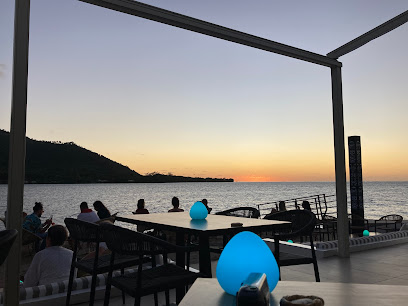
O2 CoCo Bar & Restaurant
Discover the culinary delights of O2 CoCo Bar & Restaurant in Moorea-Maiao, where stunning views meet exquisite Polynesian flavors.
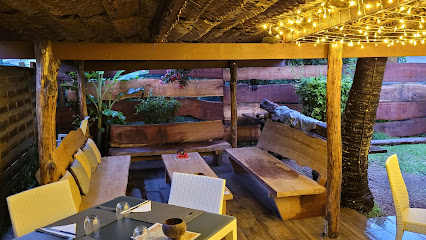
Autera'a bar restaurant Moorea
Discover the culinary delights of French Polynesia at Autera'a Bar Restaurant, where stunning views meet exquisite flavors in a tropical paradise.
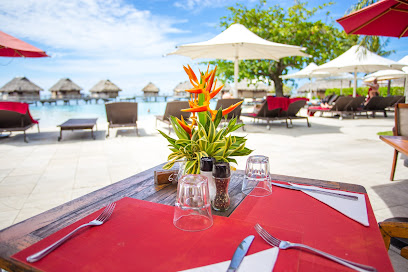
Local Phrases
-
- HelloIa ora na
[Yah-oh-rah-nah] - GoodbyeNana
[Nah-nah] - YesE
[Ay] - NoAita
[Eye-tah] - Please/You're welcomeMauruuru
[Mah-roo-roo] - Thank youMauruuru
[Mah-roo-roo] - Excuse me/SorryTahiti
[Tah-hee-tee] - How are you?Eaha te huru?
[Ay-ah-hah teh hoo-roo] - Fine. And you?Maita'i. O oe?
[My-tah-ee. Oh oh-ay] - Do you speak English?Ua haere oe i te reo angle?
[Oo-ah hah-eh-ray oh-ay ee teh ray-oh ahng-lay] - I don't understandAita au e marama
[Eye-tah oh ay mah-rah-mah]
- HelloIa ora na
-
- I'd like to see the menu, pleaseE parau atu au e hio i te meniu, maruuru
[Ay pah-rah-oo oh ay ay hee-oh ee teh meh-nee-oo mah-roo-roo] - I don't eat meatAita au e 'ai parari
[Eye-tah oh ay eye pah-rah-ree] - Cheers!Manuia!
[Mah-noo-ee-ah] - I would like to pay, pleaseE parau atu au e utu, maruuru
[Ay pah-rah-oo oh ay ay oo-too mah-roo-roo]
- I'd like to see the menu, pleaseE parau atu au e hio i te meniu, maruuru
-
- Help!Aide!
[Eye-day] - Go away!Haere atu!
[High-ray ah-too] - Call the Police!Tefea i te pouhila!
[Tay-feh-ah ee teh poo-hee-lah] - Call a doctor!Tefea i te taata here!
[Tay-feh-ah ee teh tah-ah-tah hay-ray] - I'm lostUa haehaa au
[Oo-ah high-hah-ah oh] - I'm illUa haere au i te pohe!
[Oo-ah hah-eh-ray oh ee teh poh-hay]
- Help!Aide!
-
- I'd like to buy...E parau atu au e hoko...
[Ay pah-rah-oo oh ay ay hoh-koh] - I'm just lookingTe pura faahou au
[Teh poo-rah fah-ah-hoo oh] - How much is it?Eaha te moni?
[Ay-ah-hah teh moh-nee] - That's too expensiveTe moni maitai roa
[Teh moh-nee my-tah-ee roh-ah] - Can you lower the price?E haamau i te moni?
[Ay hah-ah-mow ee teh moh-nee]
- I'd like to buy...E parau atu au e hoko...
-
- What time is it?Eaha te i te haamatau?
[Ay-ah-hah teh ee teh hah-ah-mah-tow] - It's one o'clockTe haamatau etahi
[Teh hah-ah-mah-tow ay-tah-hee] - Half past (10)Taiatai (10)
[Tie-ah-tie (ten)] - MorningPoipoi
[Poy-poy] - AfternoonApōpō
[Ah-poh-poh] - EveningAhiahi
[Ah-hee-ah-hee] - YesterdayIne
[Ee-nay] - TodayI teie po
[Ee teh-ee-ay poh] - TomorrowApa
[Ah-pah] - 1Ahitū
[Ah-hee-too] - 2Arua
[Ah-roo-ah] - 3Aritahi
[Ah-ree-tah-hee] - 4Ahiva
[Ah-hee-vah] - 5Arimaha
[Ah-ree-mah-hah] - 6Ariroa
[Ah-ree-roh-ah] - 7Ahitoa
[Ah-hee-toh-ah] - 8Ahiva
[Ah-hee-vah] - 9Ahuru
[Ah-hoo-roo] - 10Ahurea
[Ah-hoo-ray-ah]
- What time is it?Eaha te i te haamatau?
-
- Where's a/the...?E haere i te...
[Ay high-ray ee teh] - What's the address?Eaha te nūmera o teie?
[Ay-ah-hah teh noo-meh-rah oh teh-ee-ay] - Can you show me (on the map)?E haamata i te hio iau (i te plan)?
[Ay hah-ah-mah-tah ee teh hee-oh ee-ow (ee teh plahn)] - When's the next (bus)?Eaha te haamatau o te umu (autobus)?
[Ay-ah-hah teh hah-ah-mah-tow oh teh oo-moo (oh-toh-boos)] - A ticket (to ....)Te farere (i te ....)
[Teh fah-reh-ray (ee teh)]
- Where's a/the...?E haere i te...
History of Moorea
-
Moorea, like many other islands in French Polynesia, was first settled by Polynesians around 1000 AD. These early settlers were expert navigators and voyagers who traveled vast distances in canoes. They established small villages and lived off the abundant marine life and fertile lands. Archaeological evidence, such as marae (sacred stone structures), provides glimpses into their spiritual and social life.
-
The first recorded European to sight Moorea was Captain James Cook in the 18th century. During his voyages in the Pacific, Cook arrived in the Society Islands in 1769. Although he did not land on Moorea, his contact with the neighboring island of Tahiti marked the beginning of European interest in the region. Other explorers, such as Louis Antoine de Bougainville and Samuel Wallis, also sailed through these waters, contributing to the Western world's knowledge of Moorea.
-
In the early 19th century, Protestant missionaries from the London Missionary Society arrived in Moorea. They established missions, schools, and churches, playing a significant role in converting the local population to Christianity. This period saw profound changes in the social and cultural fabric of Moorean society, as traditional practices and beliefs were supplanted by Christian doctrines and Western customs.
-
Moorea, along with the rest of French Polynesia, became a French protectorate in the 19th century and was later fully annexed by France in 1880. The French administration introduced new economic activities, such as copra production and pearl farming, which altered the island's economy. Infrastructure improvements, including roads and ports, were also undertaken to better integrate Moorea into the colonial framework.
-
During World War II, Moorea, like other islands in the Pacific, gained strategic importance. The island was utilized by the Allied forces as a refueling and supply station. Although Moorea did not see direct combat, the presence of military forces brought about economic and social changes that would influence the island's post-war development.
-
Today, Moorea is known for its stunning landscapes, crystal-clear lagoons, and vibrant culture. Tourism plays a major role in the island's economy, attracting visitors from all over the world. Despite modern influences, Moorea has managed to retain much of its traditional charm and cultural heritage. Efforts to preserve the environment and promote sustainable tourism are ongoing, ensuring that future generations can continue to enjoy the island's natural and cultural treasures.
Moorea Essentials
-
Moorea is easily accessible from Tahiti, the main island of French Polynesia. The most common way to get to Moorea is by taking a ferry from Papeete, Tahiti's capital. The ferry ride takes about 30 to 60 minutes, depending on the service. Alternatively, you can take a short domestic flight from Faa'a International Airport in Tahiti to Moorea Airport, which takes roughly 15 minutes.
-
Once on Moorea, you can get around by renting a car, scooter, or bicycle. Rental agencies are available near the ferry terminal and the airport. Taxis are also available, but they can be expensive. For a more budget-friendly option, consider using the local bus service, which runs along the coastal road and connects the main villages. Additionally, many hotels offer shuttle services to popular attractions.
-
The official currency in Moorea is the CFP Franc (XPF). Credit cards are widely accepted in hotels, restaurants, and larger shops, but it is advisable to carry some cash for smaller establishments and markets. ATMs are available on the island, particularly in the main villages of Maharepa and Papetoai.
-
Moorea is generally a safe destination for tourists, with low crime rates. However, it is still important to take standard precautions. Avoid leaving valuables unattended on beaches or in unlocked vehicles. There are no specific high-crime areas targeting tourists, but it's always best to stay vigilant and aware of your surroundings.
-
In case of emergency, dial 17 for the police, 15 for medical emergencies, and 18 for fire services. Moorea has a small hospital in Afareaitu that can handle minor medical issues. For serious health concerns, you may need to be transferred to Tahiti. It's recommended to have travel insurance that covers medical emergencies. Pharmacies are available in major villages for minor health issues and over-the-counter medications.
-
Fashion: Do dress modestly, especially when visiting religious sites. Avoid wearing beachwear away from the beach. Religion: Do respect local customs and traditions. It's customary to ask for permission before entering private land or traditional sites. Public Transport: Do be respectful and greet the driver. Don't eat or drink on public transport. Greetings: Do greet people with a friendly 'Ia Orana' (hello) or 'Mauruuru' (thank you). A smile goes a long way. Eating & Drinking: Do try local delicacies like poisson cru and fresh fruits. Don't refuse hospitality, as it is considered impolite.
-
To experience Moorea like a local, visit the local markets where you can buy fresh produce and handmade crafts. Engage with locals, who are often friendly and willing to share stories about their island. Don't miss out on attending a traditional dance show or participating in a cultural workshop. For a unique experience, consider taking a guided hike to one of Moorea's scenic viewpoints or exploring the island's lush interior by 4x4 safari.
Trending Landmark in Moorea
-
Hilton Moorea Lagoon Resort & Spa
-
Sofitel Kia Ora Moorea Beach Resort
-
Belvedere Lookout
-
Tiki Village
-
Mo'orea
-
Snack Mahana RESA
-
Rudy's
-
Moorea Activities Center - Opunohu
-
Manutea Tahiti - Rotui Juice Factory & Distillery
-
Public Beach Ta'ahiamanu
-
Coco beach Moorea
-
Magic Mountain Overlook
-
Casa Vincenzo Moorea
-
Fare La Canadienne Burger House Moorea
-
Moorea Miti Tours
Nearby Cities to Moorea
-
Things To Do in Papeete
-
Things To Do in Tahiti
-
Things To Do in Tetiaroa
-
Things To Do in Huahine
-
Things To Do in Raiatea
-
Things To Do in Bora Bora
-
Things To Do in Maupiti
-
Things To Do in Rangiroa
-
Things To Do in Matavera
-
Things To Do in Muri
-
Things To Do in Ngatangiia
-
Things To Do in Avarua
-
Things To Do in Takitumu
-
Things To Do in Avatiu
-
Things To Do in Nikao











